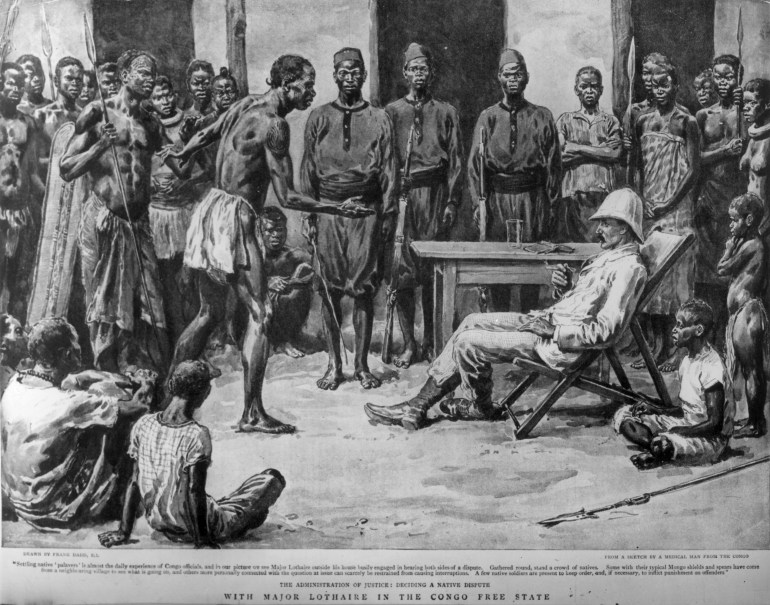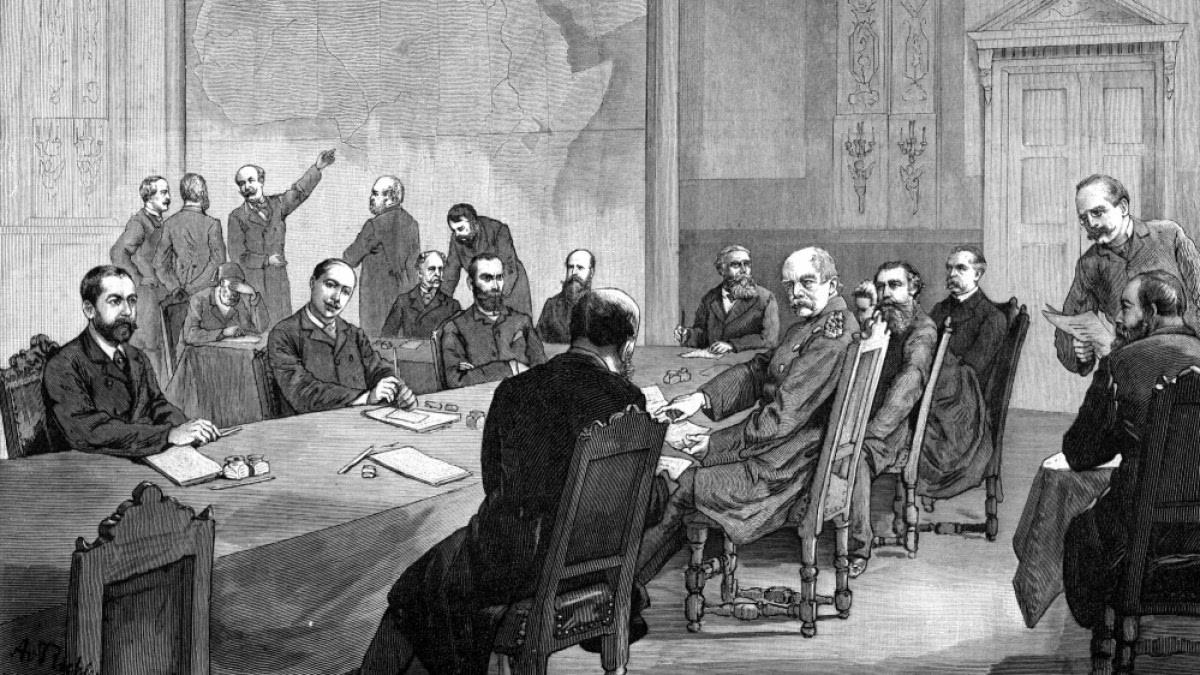The desire for direct control over Africa’s natural resources and the proclaimed intent to “develop and civilise Africa,” as per the documentation of that time, sparked what would be referred to as the “Scramble for Africa.” Key players such as Great Britain, Portugal, France, Germany, and King Leopold II of Belgium dispatched explorers to secure trade and sovereignty agreements with local leaders, either through purchasing permissions or simply by staking claims on vast territories rich in resources like palm oil and rubber.
Disputes arose in Europe regarding territorial “ownership.” For example, France clashed with Britain over several West African territories and with King Leopold over Central African regions. To prevent conflict among the European powers, all parties agreed on convening a meeting in Berlin in 1884-1885 to establish common ground and regulate the colonisation process.
Surprisingly, no African nations were invited to this gathering.

What was the Berlin Conference about?
In November 1884, German Chancellor Otto von Bismarck orchestrated the Berlin Conference at his official residence to discuss and determine which regions belonged to whom. The talks were particularly focused on the commercial and navigation freedoms in areas such as the Congo and Niger River basins.
Who attended?
Ambassadors and diplomats from 14 countries gathered for this meeting. Among them, France, Germany, Britain, and Portugal were the main stakeholders due to their extensive control over African territories.
King Leopold II of Belgium also sent representatives to secure recognition for the International Congo Society, aiming to establish his personal control over the Congo Basin. Notably, no African leaders were allowed to participate; a request from the Sultan of Zanzibar to attend was dismissed.
Additionally, nine other countries attended, most of whom did not end up acquiring any territory and included nations like Austria-Hungary, Denmark, Russia, Italy, Sweden-Norway, Spain, Netherlands, the Ottoman Empire, and the United States.
What was the outcome?
After months of negotiations, the participants formalized the partition of Africa through the General Act. This document legalized the division of the continent among the European powers and established guidelines for the subsequent colonisation efforts. The US opted not to sign, due to an emerging anti-imperialist stance domestically.
- The colonising countries drawn patches of colonies across Africa in disarray, over existing “native” nations. However, many of today’s borders were only established after the conference and following World War I.
- Furthermore, the General Act promoted free trade in the Congo and Niger River basins, acknowledged King Leopold’s International Congo Society, and stressed the need to protect “native tribes” and suppress the already outlawed slave trade. It also clarified that mere territorial claims, without effective control, were not sufficient for ownership.

Who ‘got’ which territories?
Although division of African territories was not definitively concluded at the conference, ample colonization occurred afterward. Various European powers claimed different territories in the early 20th century, as shown by their colonial possessions on the continent.
What did the conference change?
Historians argue the Berlin Conference did not commence the colonization process but markedly accelerated it, because by 1890, only a few years after the conference, the vast majority of Africa was under European control.
Critics note that colonial powers mostly disregarded pre-existing cultural and language groups, causing lasting divisions and conflict between groups that had not always been in opposition.
However, the conference directly resulted in the creation of the Congo Free State, as noted by researcher Jack Paine, a political studies lecturer at Emory University.
“Europeans had already initiated a ‘scramble’ for African territory,” Paine said, casting doubt on the widespread notion that the Berlin Conference was pivotal in Europe’s colonization of Africa.
Despite the conference’s impact, colonialism had profound and lasting consequences, affecting Africa’s political and cultural landscape even today. The boundaries and political structures were largely established with little regard for existing communities, ultimately leading to subsequent civil unrest and military rule in newly independent nations.
Julius Nyerere, the former president of Tanzania, pointed to the artificial nature of African nations as they were drawn up during the Berlin Conference, observing that this could lead to Africa becoming the world’s most divided continent.







